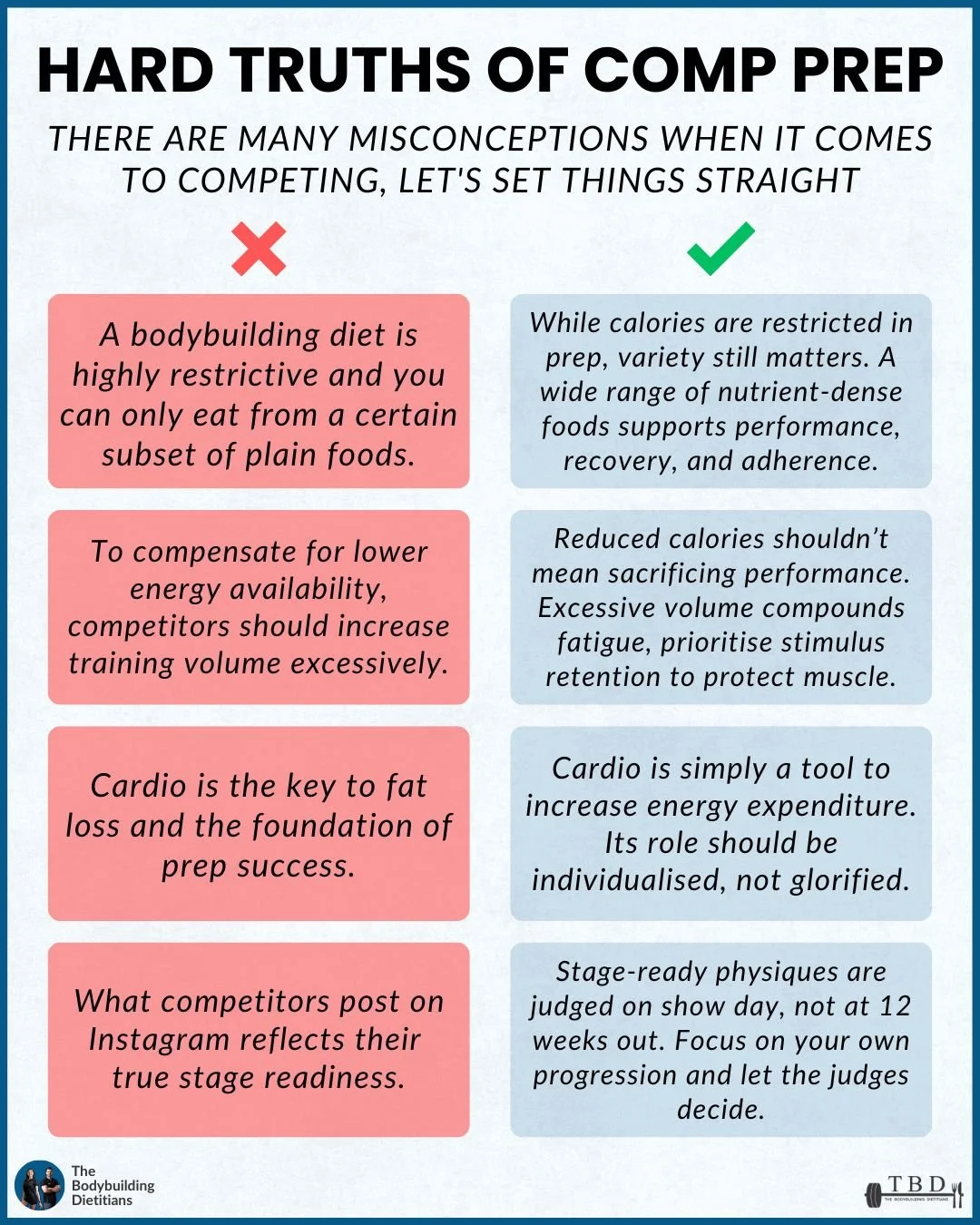Comp prep isn’t meant to break you, but it will challenge you.
There’s a common misconception that the tougher your prep feels, the “better” it must be. Extreme restriction, endless cardio, and chasing fatigue aren’t badges of honour, they’re often signs of poor strategy or poor preparation.
Modern bodybuilding is evolving. Evidence-based prep protocols show us that competitors can achieve stage conditioning without wrecking performance, health, or enjoyment along the way. Let’s break down some of the biggest misconceptions.
Misconception 1: A Bodybuilding Diet is Highly Restrictive
Many athletes believe prep means plain chicken, rice, and broccoli on repeat. While calories are restricted in prep, variety still matters. A wide range of nutrient-dense foods supports recovery, training performance, gut health, and adherence over the long weeks of prep.
A monotonous diet isn’t superior, it’s often unsustainable. Smart prep includes flexibility within structure.
Misconception 2: Lower Energy Means More Training Volume
Some competitors try to compensate for lower calories by ramping up training volume excessively. This approach usually backfires.
Reduced calories don’t mean sacrificing performance. Excessive volume adds fatigue, compromises recovery, and can lead to muscle loss. Instead, focus on retaining quality stimulus and protecting strength. Training should complement the diet, not dig you into a deeper recovery hole.
Misconception 3: Cardio is the Foundation of Prep Success
Cardio is often glorified as the magic key to fat loss. In reality, it’s just one tool to increase energy expenditure.
Fat loss ultimately comes from a sustained calorie deficit, and cardio is simply a way to add to that deficit. Its use should be individualised, some athletes may require more, some less. What matters most is the balance between training, diet, and recovery.
Misconception 4: Instagram Reflects True Stage Readiness
Scrolling through social media can create unnecessary pressure. Competitors at 12 weeks out may look shredded in photos, but stage readiness isn’t determined by Instagram lighting, it’s judged on show day.
Your focus should be on your own progression, not comparisons. The physique that wins is the one that peaks when it matters most: under the stage lights, not in a filtered post.
Conclusion
Prep is hard, but it doesn’t need to be reckless. Done right, it challenges you, builds resilience, and leaves you excited to step back on stage in the future, not burned out or hating the sport.
What’s the biggest comp prep misconception you’ve heard (or even believed) before?
If you’re preparing for your next bodybuilding show and want an evidence-based approach that protects your health, preserves muscle, and maximises stage success, our 1:1 coaching can guide you every step of the way. From nutrition and training strategy to peak week precision, we’ll make sure your prep is rewarding without unnecessary difficulties. Reach out below!
